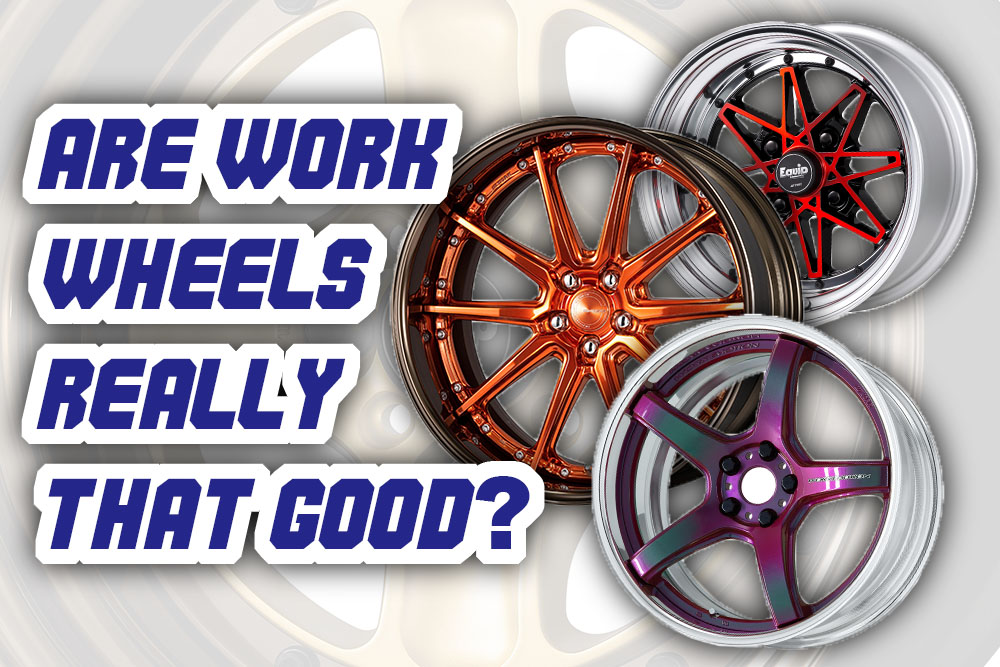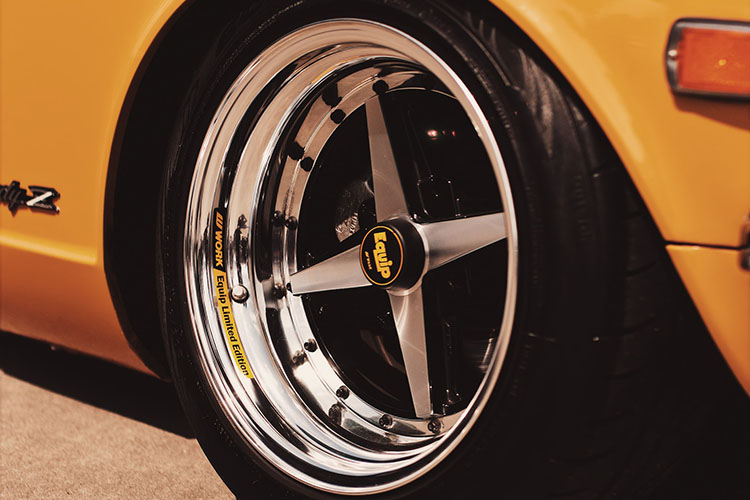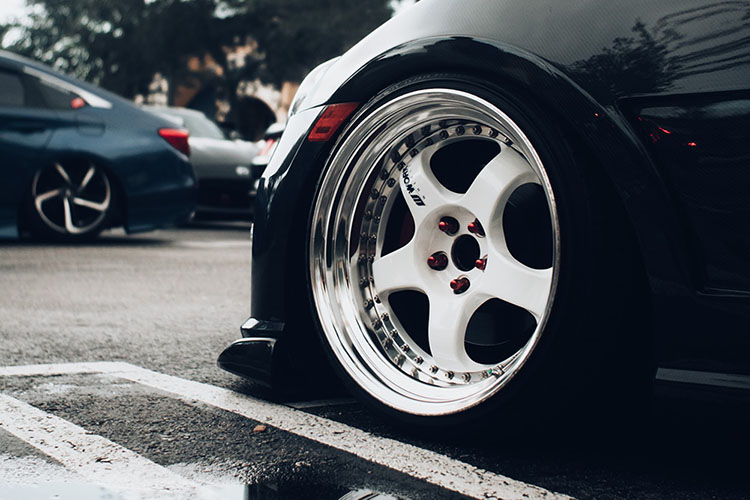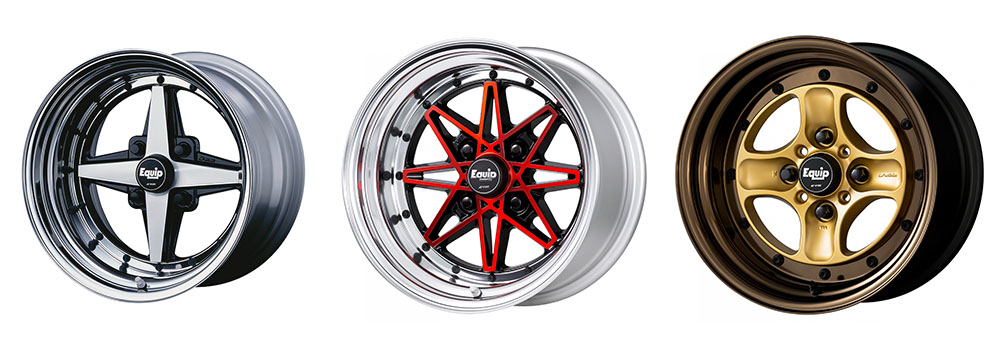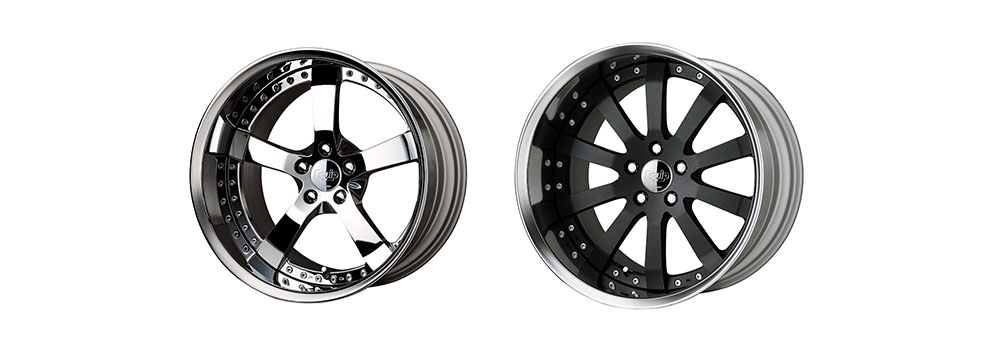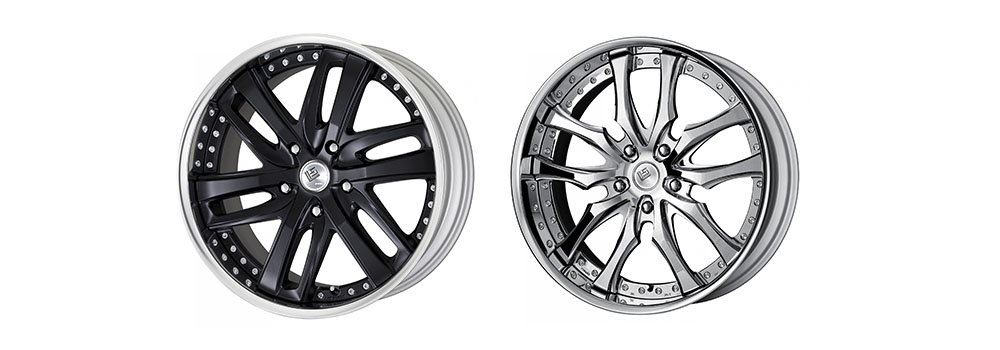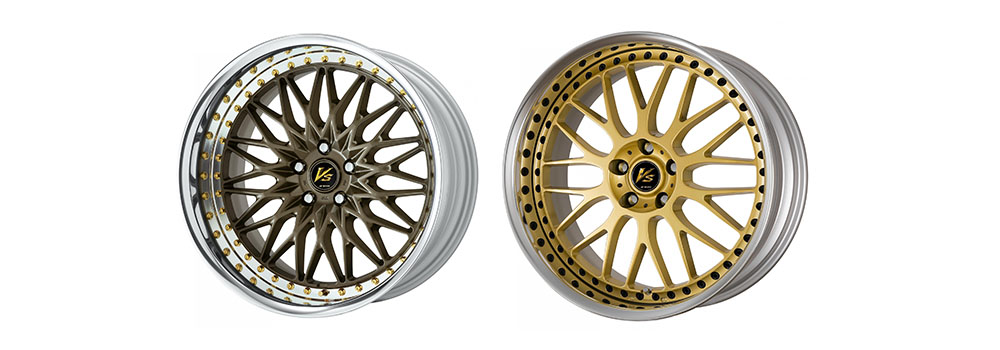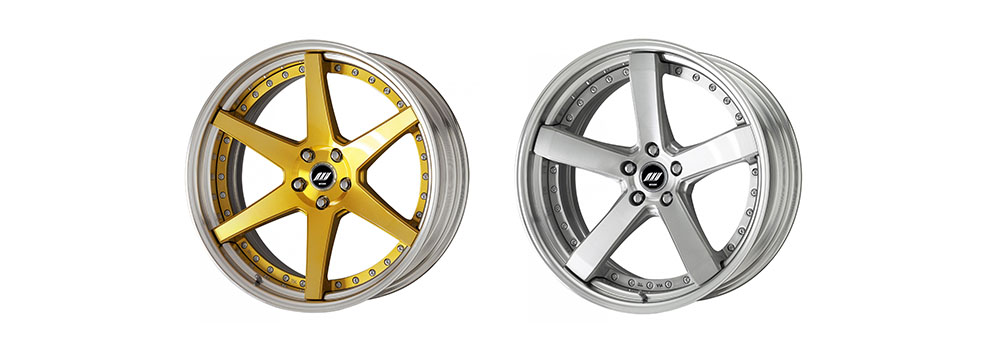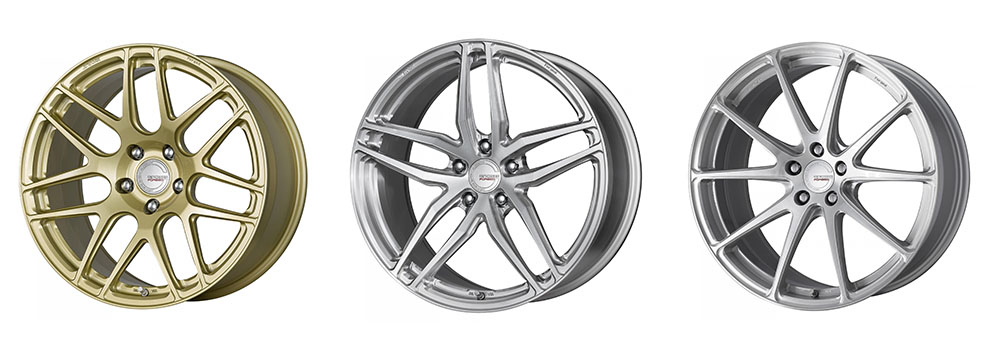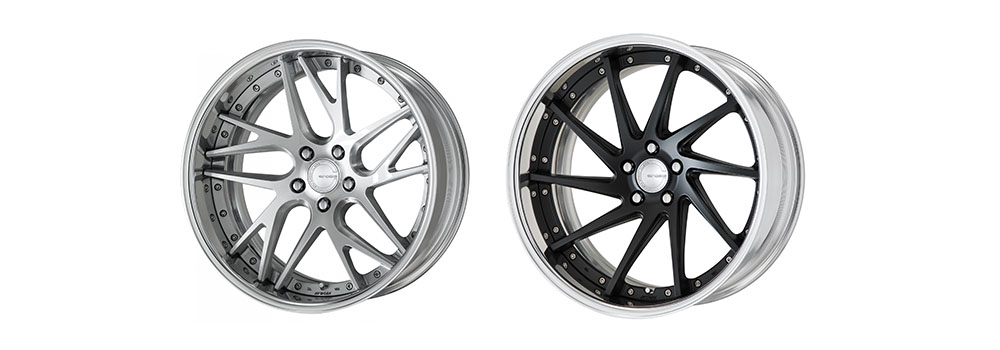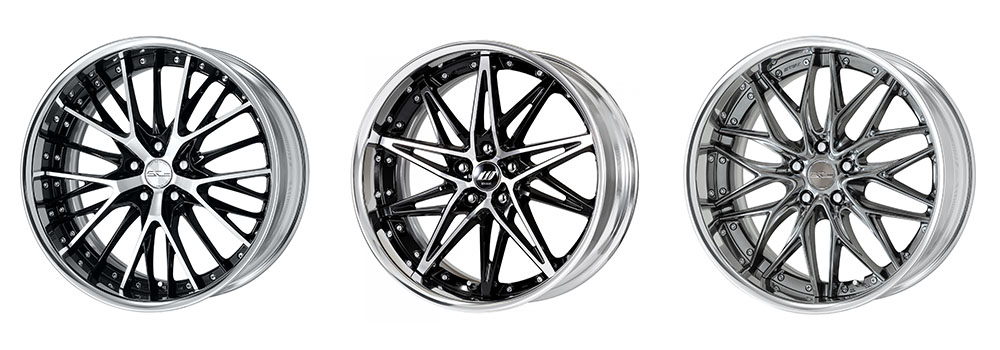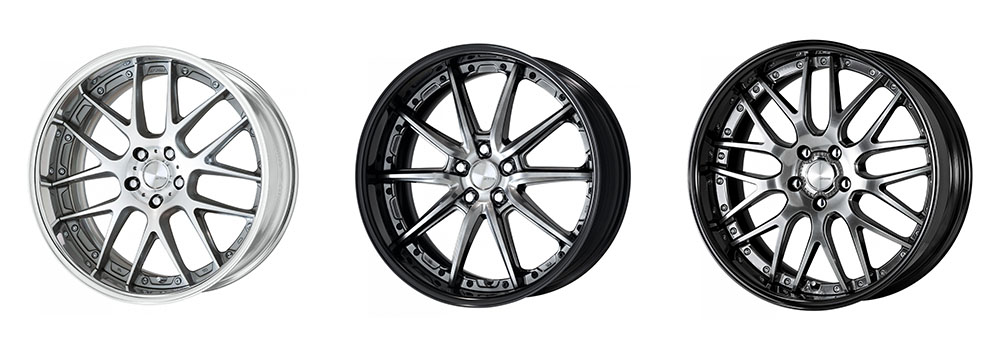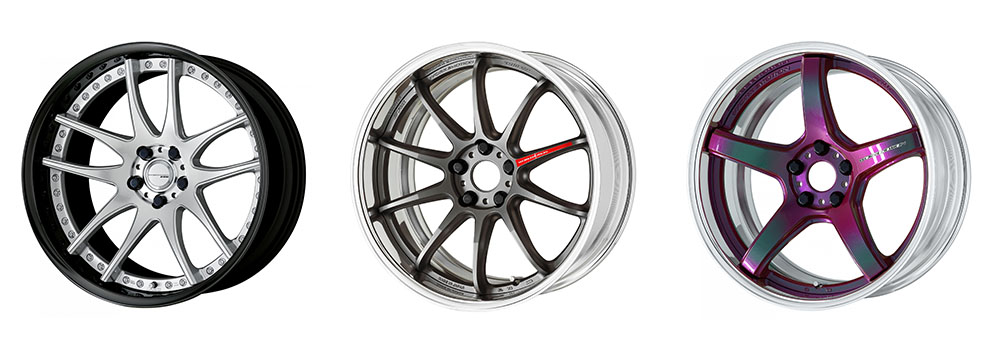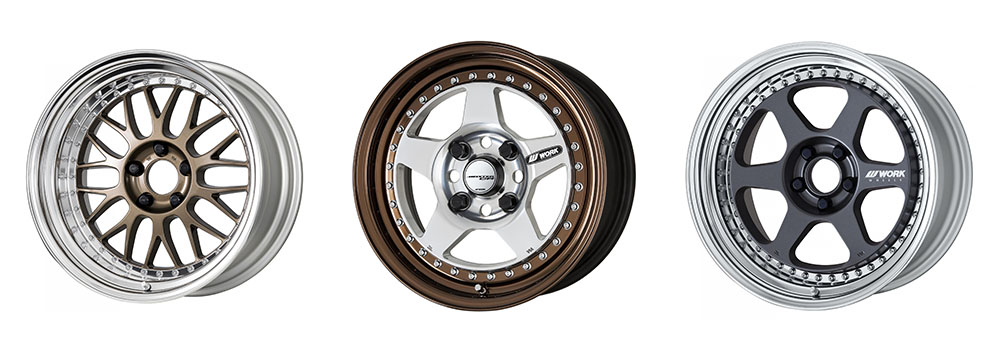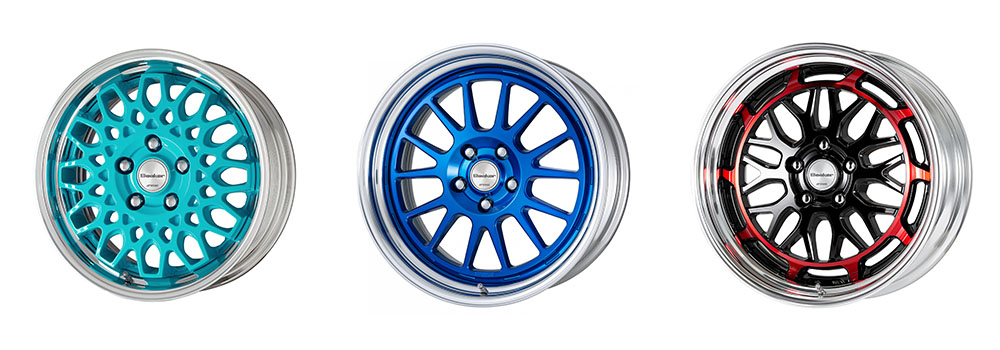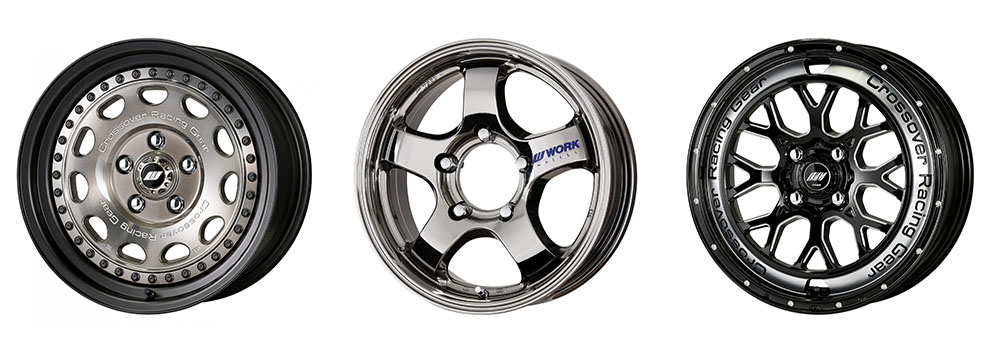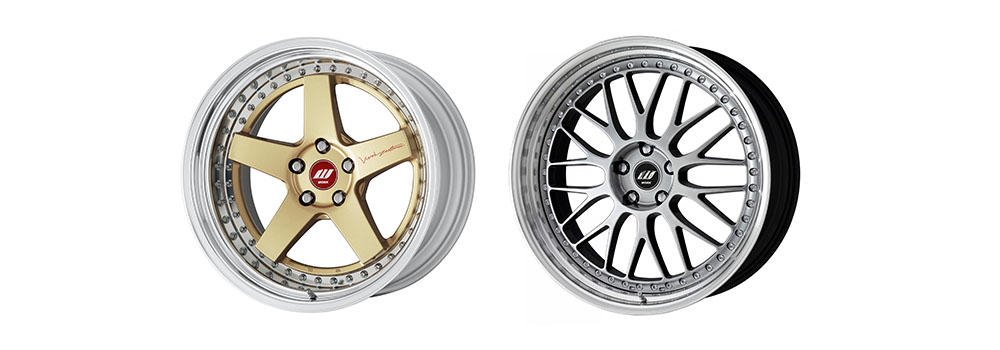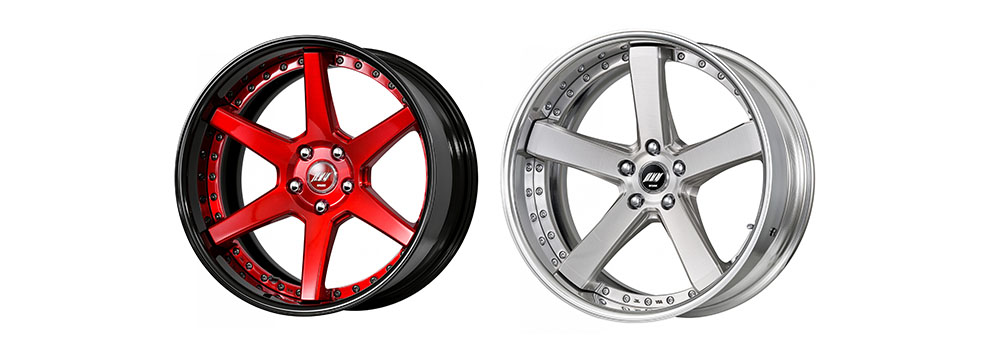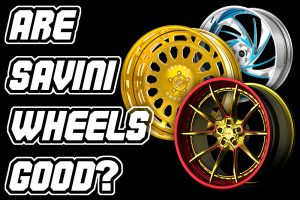2025 Work Wheels Review: Are They Really That Good?
When talking about wheels, there are a few brands that absolutely everyone has heard of and knows they are good.
Work is one of those brands.
No matter who you speak to, they will have heard of Work, and if they know anything about cars they will know that they are one of the legends.
But are their wheels really worth the (sometimes ridiculously high) price tags?
In this post, I will go over Work Wheels in detail, what makes them special, and if they are really that good.
The History of Work Wheels
Work Wheels was founded on March 8th, 1977 in Japan by Takeshi Tanaka.
The name “Work” came from the fact that Tanaka-San believed that if you work hard, anything can be achieved. So he named the company “Work”.
In 1979, they opened their first 3 piece wheel factory in Osaka, Japan.
They began making aftermarket wheels that people wanted at the time, but were not readily available, making them quickly grow in popularity.
In 1981, they opened a second factory and began to dominate the aftermarket JDM scene.
The first wheel they produced was the Work Equip, and by 1983 they were making the Equip 01, 02 and 03 models.
What made Work Wheels special was they offered a range of creative designs that people really liked, and their wheels were made to a very high quality standard.
The Work Equip line of wheels is one of the oldest wheel lines in the world, and they still make them today, including the original 01 and 02 models.
In the 90s, just as the import car scene was taking off in America, Work cleverly brought their brand over to the USA, just in time to take advantage of the popularity growth, which resulted in their brand being established as one of the go-to wheel brands, especially for JDM cars. That popularity has not slowed down since.
Work Wheels got ISO9001 certified in December 2003, and is a long standing member of JAWA, the top wheel safety standard certifier in Japan.
They are also heavily involved in motorsport, and have been since the beginning, supplying wheels and sponsoring many teams including TODA racing, GT300, GT500, Formula 3, and the N1 Endurance Series teams.
Work take great pride in the quality of their products and how their brand is perceived, putting a lot of effort to ensure they are seen as a high class, top quality brand that only makes the best products.
They currently have four factories in Japan and offer a huge range of creative wheel designs and many customisation options that cater to everything from race cars to VIPs and show cars, making them one of the top wheel brands for custom high quality wheels.
Unfortunately, Work’s founder Takeshi Tanaka passed away in 2015.
Here is a video from Work Wheels showing a bit of history and how they make the wheels:
How Work Wheels Are Made
One of the things that sets Work apart is that they make wheels using an “On Demand System” which allows each customer to order wheels specific to their requirements.
To get a set of Work wheels made typically takes about 2-3 months, but in some cases can take 5-6 months or longer.
It is also possible to buy some Work Wheels of the shelf, mostly the monoblocks, where you won’t have to wait as long.
Customization
Work offers a wide range of customization options for most of their wheels which allows you customize practically every part of the wheel.
Work wheels come in a huge range of sizes from 14-22” diameters, 5-16” wide and offsets from -110mm to 88mm, depending on the wheel model.
From custom wheel, lip and barrel colors and finishes to different lip styles such and step lips, hardware, custom PCDs and even a lazer tattoo option, Work really let you design the perfect wheel.
Manufacturing
While Work doesn’t publicly release a lot of information on how exactly they make their wheels, they are well known for being extremely strong, particularly their rims and barrels.
They have four of their own factories in Japan where they make all of their wheels, which allows them to ensure that every wheel is made to the highest quality.
What we do know regarding how they make their wheels is they use either flow forming or forging, depending on the wheel model.
Flow Forming
Flow forming is a method where the center of the wheel is cast, and then it is put on a machine and spun at high speeds while head is applied, and rollers apply pressure to the center to form the barrel.
One thing that makes Work’s flow formed wheels special is that unlike most wheel companies that use gravity casting to make the center, Work uses low pressure casting which results in a much stronger wheel structure.
Low pressure cast flow formed wheels are very strong and lightweight, while costing significantly less than forged wheels.
Forging
Work do also use forging to make some of their wheels, particularly the outers.
They don’t provide any specifics on exactly what forging methods they use, but their track record of quality more than proves that they do an excellent job at making extremely durable wheels.
Solid Rim Flange
Work has also developed what they call a “solid rim flange”. Most wheels have a hollow rim flange which is not that strong and can bend or dent easily.
Work’s solid rim flange gives the rim extra strength and makes the wheel far less likely to bend or crack upon impact.
Safety
Work are JAWA certified which is the highest level of safety certification you can get in Japan. In order to get JAWA, you must be JWL certified and VIA certified, only then can you get JAWA certification.
The fact that Work have JAWA shows how much they care about the quality of their products, as it is not mandatory to go through this process to sell wheels.
Along with that, there’s a reason you have practically never heard of anyone having issues with Work wheels. They make very high quality wheels that don’t fail, and that is one of the reasons they are so popular despite the high prices.
Current Work Wheel Lines
Work make such a huge selection of wheel designs that I won’t list them all or we’d be here all day. However, what I will do is list out their different wheel lines so you can get an idea of what they offer.
Equip (Original)
Equip
LS
VS
Emitz
Zeast
Gnosis FMB (Forged Monoblock)
Gnosis AE
Gnosis GSR
Gnosis IS
Gnosis GR
Gnosis CV
Schwert
Lanvec
Raizaltado
Emotion
Meister
M.C.O. Racing
Seeker
Crag
Leadsled
Goocars
Xtrap
Zistance
Back Label
Conclusion – Are Work Wheels Worth It?
Yes, Work wheels are worth it.
Work only make wheels that are the highest quality. Work are one of the oldest wheels brands and are up there with the likes of BBS, Volk and SSR.
They also offer a huge range, lots of customization, they look great, they are good for performance, they get respect, literally everything you could want when spending thousands of dollars on a set of wheels.
They also make such a wide range of wheels designs that no matter what car you drive, odds are Work has the perfect wheel for you.
GET WORK WHEELS FOR THE BEST PRICE HERE
FAQ About Work Wheels
Is WORK Wheels From Japan?
Yes, Work Wheels was founded in Japan and continues to only make wheels in Japan to this day.
Who Makes Works Wheels?
Work have their own factories in Japan where they make their own wheels.
Are WORK Wheels German?
No, Work Wheels is not German. Work Wheels was founded in and is based in Japan.
How Long Do WORK Wheels Take?
Typically, it takes 2-3 months to get Work wheels, but sometimes can take 4-6 months depending on how custom and complex the wheels are to produce.
Are WORK Wheels Made In China?
No, Work wheels are not made in China. Every single Work wheel is made at one of Work’s factories in Japan.
Are WORK Wheels Made In Taiwan?
No, Work wheels are not made in Taiwan. All Work wheels is made at one of Work’s factories in Japan.
Are WORK Wheels Reps?
No, Work wheels are not reps. Work has been making original wheels since the 1970s, and are one of the most copied wheel brands on the planet.
GET WORK WHEELS FOR THE BEST PRICE HERE
- BC Racing Coilovers Review – Are They Any Good? - September 12, 2024
- 8+ Best Nissan 350Z Coilover Guide In 2025 - September 12, 2024
- Top 6 Best 2015 Subaru WRX Coilovers - September 12, 2024

